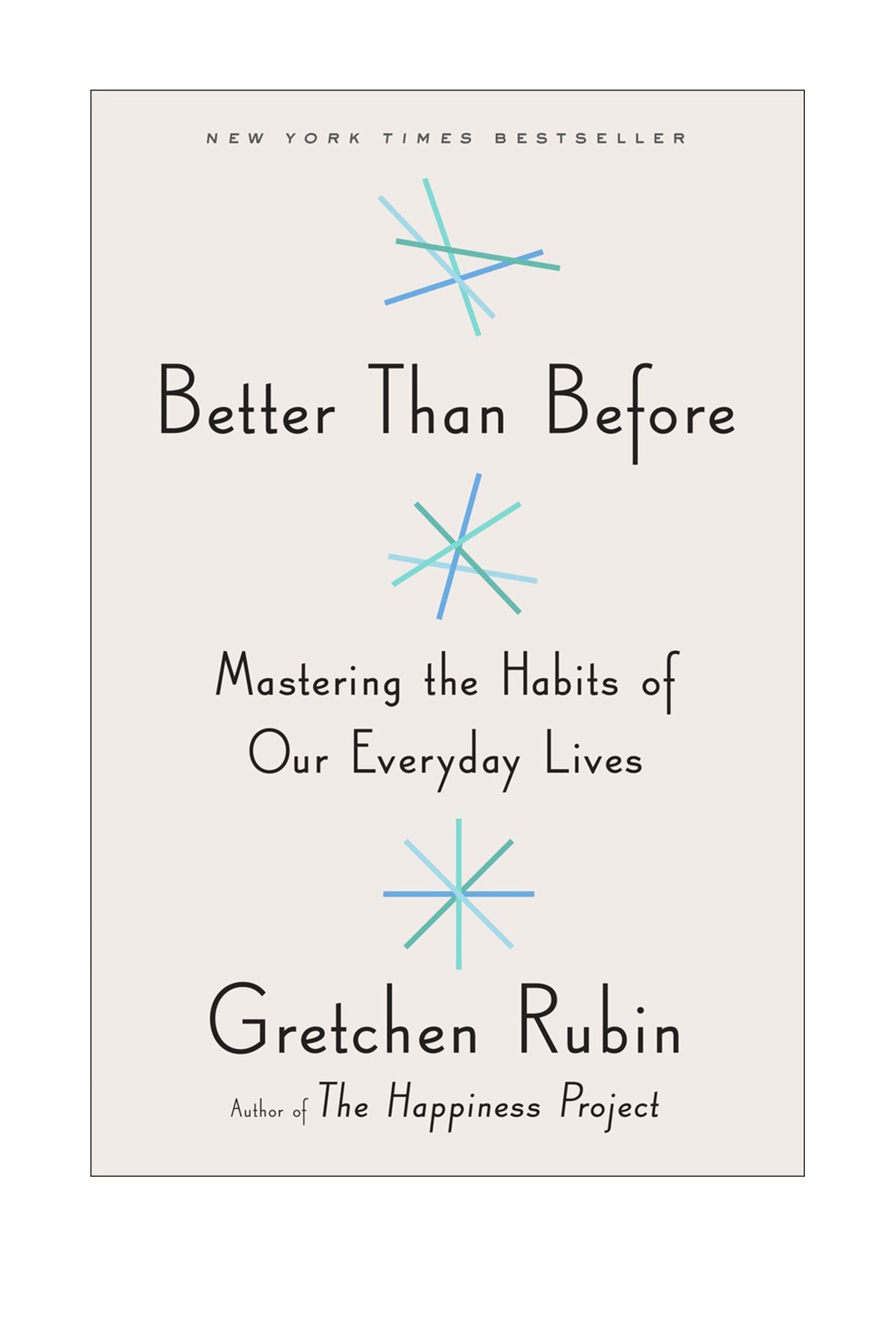It seems so obvious doesn’t it – when you change your habits, you change your life. Author Gretchen Rubin notes most humans repeat about 40 percent of behaviour almost daily, so your habits shape your existence, and your future. Rubin is a well-known author with two previous books, The Happiness Project and Happier at Home, both making it to the bestseller list.
Though obvious, what struck me was that habits I establish may free me from daily decision making and having to use self-control. Rubin suggests life becomes simpler, and your daily inner struggle over choices is lessened. And that these routines allow you to get some traction with your personal goals resulting in you becoming more productive and creative.
She cites research that people with better self-control are happier and healthier. They’re more altruistic; they have stronger relationships and more career success; they manage stress and conflict better; they live longer; they steer clear of bad habits.
Different approaches to habit making
The chapters are full of different styles and ways of approaching habit making, reinforcing the idea that the habits you nurture need to be personally selected to ensure they reflect your values and mesh with your personality. Don’t let the chapter headings put you off! Titles such as monitoring, scheduling, accountability and abstaining can send shivers down anyone’s spine.
Rubin shows you many sides to these instructions, noting there is no one way and it is best to test drive ideas to see how they may fit in your life. Her motto is: first, you must know yourself. Only then you can shape habits to suit yourself.
Some may accuse Rubin of overthinking things as her book on what seems like a simple subject is quite lengthy and detailed. But her chatty writing style, and introductions to her family and friends, draw you in, and she tests out her theories with those closest to her. She manages to normalise the battle we all have on a daily basis where you declare a list of good intentions in the morning but somehow the busyness of life detours you.
Rubin goes as far as saying that the habit of the habit is more important than the habit itself. I can see how making a commitment to your wellbeing can fortify you, and honouring daily health-promoting habits would give you the energy and resolve to repeat such actions.
You are presented with four distinct groups that describe common ways of relating to habit making. I neatly fit into the “obliger” category. This means I am great at meeting deadlines and helping others, but fail miserably at honouring commitments to myself.
While the subject of developing healthy habits seems basic, it’s common to fail miserably at sustaining them in the long term. If this sounds like you, Rubin’s book might be well worth a read.
Reviewed by Kim Higginson, Information Resources Specialist at the Mental Health Foundation

